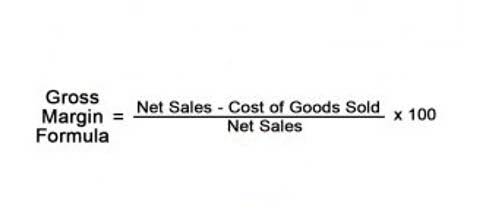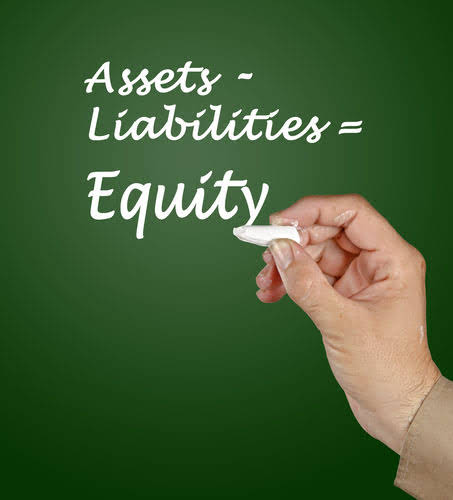
Considering the leasing agreement features an ownership transfer – one of the conditions that qualify a lease as a capital lease – the lease is treated throughout the lease term as if the corporation is the owner. The corporation is therefore obligated to capitalize the lease on its financial statements to comply with U.S. An operating lease is expensed like every other expense in the period it was incurred. On the other hand, a finance lease or a capital lease is capitalized and treated as an asset in the accounting books. We detail out how a finance lease or a capital lease is capitalized and treated as an asset in the accounting books and how it impacts the financial statements later in this article. A finance lease transfers ownership capital vs operating lease risks and rewards to the lessee, with expenses recognized separately as asset amortization and interest.
- When businesses come to us at Noreast Capital, they often ask about the real differences between equipment lease vs finance options.
- However, renewal or extension options may be available, allowing continued use without long-term commitment.
- Before making your decision, I’d strongly recommend sitting down with your tax professional to determine which approach aligns best with your overall tax strategy and current financial situation.
- Both finance leases and operating leases must now be recorded on the lessee’s balance sheet as right-of-use (ROU) assets and lease liabilities.
- A lessee will not typically capitalize sales tax, as the payment amount is dependent on the sales tax rate; thus, you would book sales tax as an expense in the period incurred.
Frequently Asked Questions about Capital Leases and Loans
- We pride ourselves on transparency regarding end-of-lease terms and conditions, ensuring there are no surprises when your lease concludes.
- On the other hand, finance leases are treated as capital lease agreements, which means that only the interest portion of the lease payments is deductible, while the principal portion is not.
- Whether you’re looking to lease or buy equipment, we’re here to support you every step of the way.
- In general, capital leases recognize expenses sooner than equivalent operating leases.
- For example, a capital lease may be better if a larger piece of machinery is too expensive to purchase outright, but your business can afford to maintain and insure it.
- The evaluation of the specialized nature can be assessed through the sale option or leasing to another party by the lessor.
Depending on the type of lease, you will either rent and return the equipment or purchase it with a balloon payment at the end of the lease period. Understanding the differences between equipment leasing and financing can help you choose the best option for your budget, cash flow and long-term goals. A tax accounting method change may provide more appropriate or beneficial tax treatment.
- While the full deductibility of lease payments in true leases can be advantageous, finance leases offer the potential for higher deductions through depreciation expenses.
- So how do these types of leases affect your income statements and balance sheets?
- A capital lease is a contract allowing a renter to use an asset temporarily.
- Operating leases tend to be shorter and more flexible, allowing for easier adjustments.
- For a lessee, the main accounting distinction between a finance lease and an operating lease is that reported assets, debt and expenses are generally higher in the early years under a finance lease.
- ASC 842 provides a practical expedient that, upon transition, allows a company to retain the lease classifications for leases that commenced pre-transition.
Accounting treatment
The equipment finance industry is massive—reaching $1.2 trillion and growing over 8% in 2025 alone, according to the Equipment Leasing and Finance Association. With automated ASC 842 compliance, single-click journal entries, and ROU asset adjustments, you can ensure your leases are accurate and audit ready. In this section though, we will be focusing on the liability created by the lessee (the company leasing the asset from some other company). The lease satisfies most of the conditions; hence it is classified as a finance lease.
Balance Sheet Effect
While a true lease offers flexibility and lower monthly payments, a finance lease provides customization options and potential ownership at the end of the term. Assessing your https://www.bookstime.com/ business needs and consulting with financial professionals can help determine the best option that aligns with your objectives. However, the expense recognition pattern does differ for operating and finance leases. The fundamental concept of a capital lease is in its treatment as an asset purchase, with ownership benefits and the risks shifting to the lessee.


Instead of purchasing the excavators outright, which would require a substantial upfront investment, the company decides to enter into a finance lease agreement. By doing so, the company can use the excavators for the duration of the project, make regular lease payments, and return the equipment at the end of the lease term. This allows the company to avoid the burden of owning and maintaining the equipment once the project is completed. Finance lease is an appropriate mode of finance for those who cannot raise funds through debt. A company must carefully decide whether it wants to enter finance lease agreements after considering them.

Understanding Capital Leases vs Loans
- Finance leases are considered as purchasing an asset and need to be recorded as such on the company’s books.
- On the balance sheet, you put the current market value of the asset at the time of purchasing.
- A loan is a straightforward borrowing arrangement where you receive money to buy an asset and agree to repay it over time with interest.
- In the case of an operating lease, because the lessor fully owns the equipment, and the title will not be handed over to the lessee at any point, they will be fully responsible for the running costs.
- For operating leases, the present value is lower, which is why it can be classified as an operating expense.
- Capital leases can be advantageous if your business needs flexibility and frequent equipment upgrades without the burden of ownership.
The decision between equipment lease vs finance ultimately comes down to balancing immediate cash flow needs against long-term cost efficiency and ownership benefits. Each business’s situation is unique, which is why we at Noreast Capital take the time to understand your specific circumstances before recommending a solution. For many businesses, especially those with limited capital or unpredictable cash flow, leasing provides a lifeline to access essential equipment without large upfront investments. Meanwhile, financing offers the path to ownership and potential tax advantages for businesses planning long-term equipment use. When a lease is classified as operating, such as when no ownership transfer occurs at the end of the lease term, interest expense is not separately recognized and is instead incorporated into period rent expense. With an operating lease, the net ROU asset on the balance sheet is larger early in the lease term.

Advantages of finance leases
These criteria determine not only the classification of the lease, but also how lessees and lessors should account for a lease. While a distinction between operating and finance lease accounting treatment and presentation still exists, ASC 842 mandates that both types of leases must be on the balance sheet for US GAAP reporting. From a capital lease perspective, the accounting under the new lease standard ASC 842 is relatively similar to ASC 840. Nevertheless, the fundamental Suspense Account accounting of the present valuing the future lease payments and recognizing a liability and asset has not changed. As a result, a company that enters into an operating lease, as the lessee, will record a lease expense on its income statement during the period within which it uses the asset.